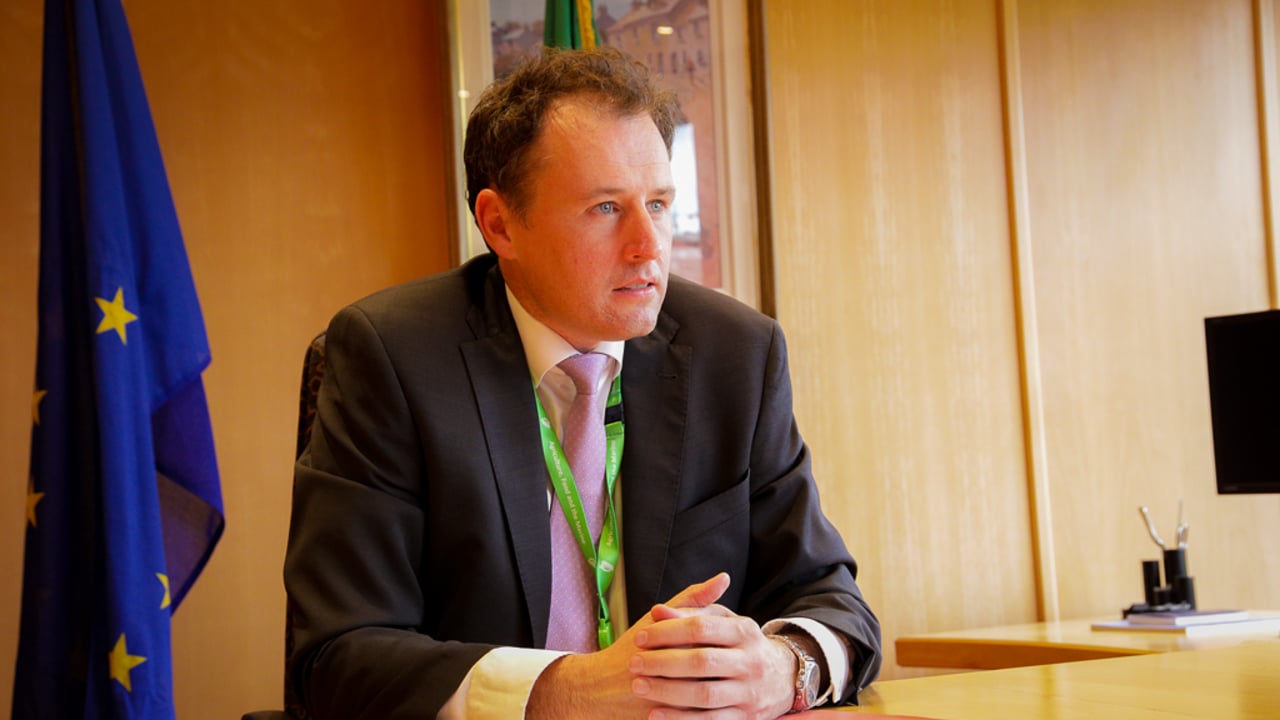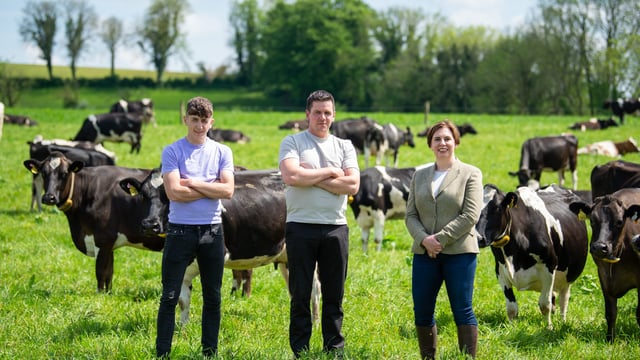Interview: McConalogue - straw baling funding will come from SIM
The amended Straw Incorporation Measure (SIM) and associated baling scheme will be paid for by a ring-fenced tillage support fund, announced by Minister for Agriculture, Food and the Marine, Charlie McConalogue.
The minister is also confirming that all SIM applications will be processed in full, as was the case in 2023, bringing the full funding requirement up to a possible €12 million.
This does not represent new money, as such, for the tillage sector because the funding stream represents the re-direction of the monies that would have been made available for SIM under normal circumstances.
An €50 million funding package has been agreed for SIM, to be made available over the five years of the Common Agricultural Policy (CAP) Strategic Plan. The measure is to be part funded by the European Union and the Irish government.
Last week, Minister McConalogue announced a proposal that the SIM would be deferred for 2024, citing concerns over fodder shortage.
The decision prompted a firm backlash from farm organisations and several politicians, including from within the minister’s own department. Now, it appears that the minister has made a u-turn on that move.
Minister McConalogue has proposed the introduction of a payment for a straw baling measure to “run in tandem” with the SIM.
He has now proposed that those that withdraw from SIM and bale straw will receive a payment rate of €175/ha in recognition of their efforts to prevent a fodder shortage.
Speaking to Agriland last evening after announcing somewhat of a u-turn on his decision regarding the SIM, the minister confirmed that he could not support the chopping of good quality straw, given the prospect of a potential fodder crisis unfolding over the coming winter months.
He said he was not surprised at the enormity of the backlash from the farming organisations, following his initial decision to defer the SIM in 2024.
“It is my job to show leadership. I would not countenance the chopping of good straw that can be used for fodder and bedding purposes over the coming months," he explained.
“I do not want imported straw coming into the country, if it can be at all avoided.
“I met the farming organisations earlier this week. And we have agreed on a way forward that makes sense from everyone’s perspective.”
Meanwhile, the minister has reaffirmed the government’s commitment to secure an expanded tillage footprint in Ireland.
The current Climate Action Plan references a 400,000ha cropping area to be secured by 2023.
“And this remains the target,” the minister stressed.
“In fact we are 6% ahead of the curve in this regard, relative to the situation that existed when I took office four years and ago. And I want to build on that for the future.”
The minister admitted that last autumn’s atrocious weather had limited the planting opportunities for cereal crops at that time.
He also outlined that the specific commitments made by him on behalf of the tillage sector over the last four years are highly significant. The minister specifically referenced the impact of SIM and the Tillage Incentive Scheme in this context.
“I have also confirmed an additional €30 million tillage support fund for 2024,” he explained.
“This reflects the impact of the very poor weather that impacted on the tillage sector as a whole last harvest and during the subsequent autumn planting season.
“No other EU member state made a commitment of this significance.”
Minister McConalogue is also keen to highlight the value of the work undertaken by the members of the Food Vision Tillage Group.
He has confirmed that the measures proposed within the group's final report will be given due consideration, but has not said when an official response to the publication will be delivered.
The minister has also indicated that Budget 2025 will contain a number of direct and indirect measures that have a bearing on the tillage sector.
It is his intention to officially open the 70% grant scheme for slurry importing farmers, within the coming days.





